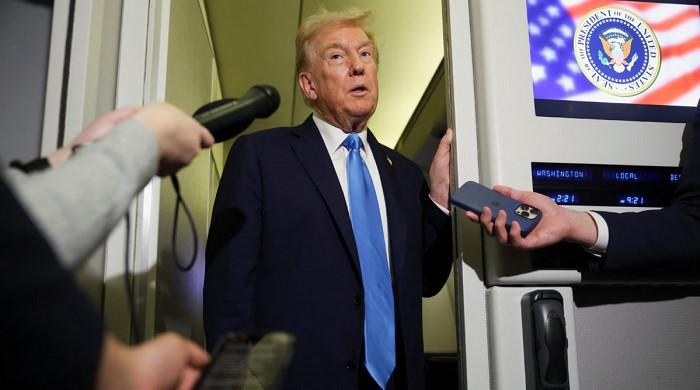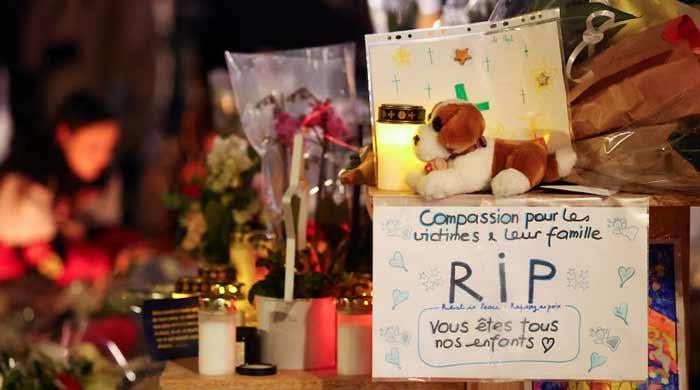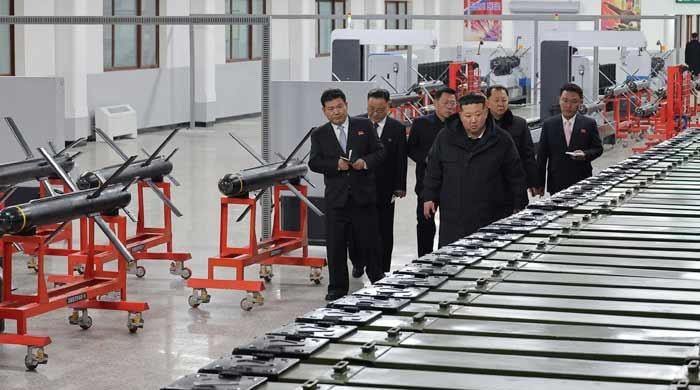Middle East countries return to normalcy after coronavirus-led lockdowns
According to a Reuters tally, region has reported more than 335,000 cases and recorded over 11,000 deaths
May 06, 2020
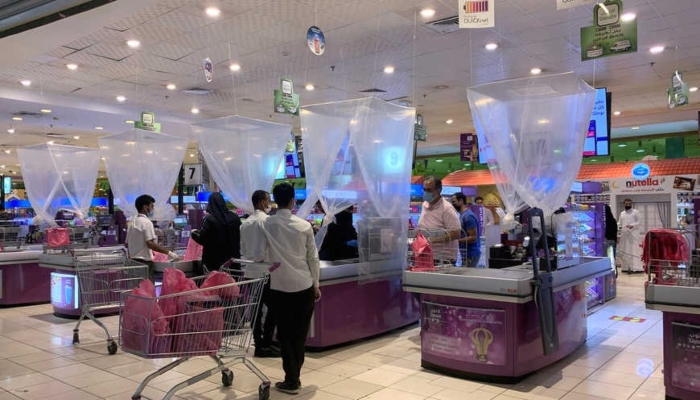
For the Middle East, its main source of income, which is oil, has been hit after a global decrease in prices, thus, the lockdown came as a double whammy for the region.
According to a Reuters tally, the region has reported more than 335,000 cases and recorded over 11,000 deaths.
The Middle Eastern countries have also sent back many expatriates who were working in the region to their respective countries in a bid to stop the spread of the virus.
Here's a look at how some Middle Eastern countries have started easing restrictions for their citizens:
Saudi Arabia
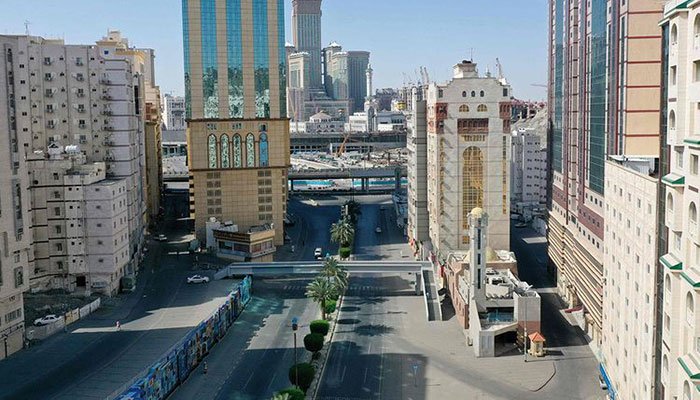
Saudi Arabia on April 26 eased curfews across the kingdom but is yet to lift restrictions in the holy cities of Makkah and Madina, state news agency SPA was quoted by Reuters.
According to a royal decree, curfews will be eased between 9am and 5pm until May 13 in the area outside Makkah and other lockdown areas,
The royal order also allowed some economic and commercial activities to restart, including wholesale and retail shops and shopping malls, from Wednesday until May 13.
The shops have been asked to ensure that the distance between customers should be at least 10 square metres. Malls have been directed to be sterilised every 24 hours and children under 15 have been banned from entering them.
Riyadh has also decided to not open up schools, mosques and restaurants as maintaining due to social distancing problems. Social gatherings of more than five people also remain banned because of COVID-19, Reuters reported.
Also read: Saudi Arabia to suspend taraweeh prayers in Ramazan
The state news agency has also reported that activities which do not allow physical distancing, including salons and cinemas, will remain closed.
In a step to further control the spread of the coronavirus, authorities in Riyadh have asked people not to use banknotes.
Saudi Arabia has also allowed entry and exit in the Qatif province from April 30 onwards.
Qatif, located in the eastern region of Saudi Arabia, was under lockdown since March 8 to prevent the spread of the coronavirus.
UAE
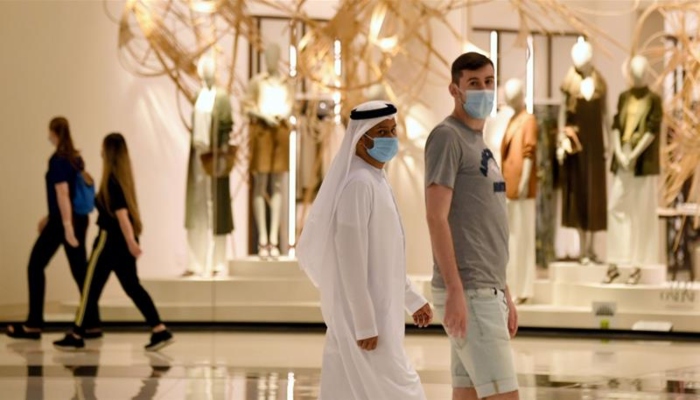
In the UAE, Dubai took the lead among the emirates and was the first to announce the easing of lockdown restrictions on April 23 by setting rules for citizens and expatriates to follow.
According to Gulf News, the emirate has made it compulsory for individuals who step out of their homes to wear a face mask and avoid touching any surfaces or their face. Anyone found violating the order will have to pay a fine of 1,000 dirhams.
The publication reported that Dubai has also barred senior citizens and people with existing medical conditions from leaving their homes. It added that domestic workers have also been prohibited from meeting anyone outside the home or receiving food from unknown sources.
Dubai has also barred people from distributing food, which was common in Ramadan, but has allowed government-approved charities to carry out the activity. People have also been asked not to share food with family members living in different homes.
The emirate has also decided not to reopen mosques but has allowed group prayers and Taraweeh prayers at home. However, as per the rules, the people participating in the prayers must be from the same household.
Also read: Dubai lifts lockdown in Al Ras and Naif districts
Soon after issuing the individual guidelines, Dubai announced a partial reduction in the restrictions on movement from April 24.
Under the rules, malls will be allowed to operate for 10 hours daily, while supermarkets, food outlets, groceries and pharmacies have been allowed to operate 24/7.
According to Arab Business News, the emirate has decided to not open up family entertainment facilities and cinemas, but allowed restaurants and hotels to operate with 30% of their staff at a time.
Dubai has also allowed hair salons to start their operations but they can only cater to customers on an appointment basis.
The emirate has also reopened public transport including the metro from April 26. But the emirate has stated that a curfew will be in effect from 10pm till 6am.
Following Dubai, on May 3, UAE capital Abu Dhabi also allowed the reopening of malls to a limited number of customers, reported Reuters. Meanwhile, Sharjah also reopened its malls to the public.
According to state news agency WAM, the UAE Ministry of Health and Prevention (MoHaP) and the National Emergency Crisis and Disaster Management Authority (NCEMA) has prohibited people over the age of 60 and children younger than 12 from entering shopping malls, cooperative societies, and supermarkets from May 5.
Bahrain
Doha-based Al Jazeera reported that Bahrain has made it mandatory to wear masks outdoors after easing some restrictions at the start of Ramadan.
The country had previously announced that shopping malls and some stores will reopen on April 9.
However, Bahrain announced that it has extended the closure measures it took to limit the spread of the coronavirus for two additional weeks from April 23 until May 7, Gulf News quoted the state news agency.
Oman
Oman’s Supreme Committee formed for dealing with the coronavirus crisis on April 28 had decided to open some business activities, reported The Times of Oman.
According to the publication, the committee decided to open businesses after reviewing the economic impacts of the pandemic, particularly commercial and industrial activities
The businesses allowed to reopen are vehicle repair workshops, fishing boat repair workshops, car parts sale shops, outlets selling spare parts of fishing equipment, outlets selling electronic and electrical appliances and computers, outlets repairing home electrical appliances/equipment, satellite transmission equipment outlets, car rental offices, equipment and machinery rent offices, sale in outlets specialised in stationery and office supplies, printing presses, quarries and stone crushers.
The publication reported that under the guidelines, customers have been prohibited from entering the workplace. While the services can only be offered if the companies resort to a receiving and delivery system.
The committee has also allowed automobile electrical outlets, lube change outlets, brake repair workshops, tyre sale and repair outlets to open up. The paper reported that money exchange companies have also been allowed to resume their services.
However, the condition for the above-mentioned businesses can only cater to only two customers at a time in their outlets.
The country has urged these services to practice health precautions and has asked people to avoid assembling for gatherings.
Kuwait
Kuwait, on the other hand, has decided to extend the suspension of work across all state institutions until May 28 and expanding its nationwide curfew to 16 hours, reported Al Arabiya.
Initially, the suspension was supposed to last until April 26 when it was announced last month.






